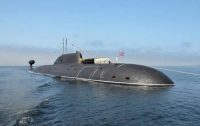
The number one reason to fix U.S.-Russia relations
Russian President Vladimir Putin said on Wednesday that Russia was ready to fully restore relations with the United States following the election of Donald Trump. But even so, when Trump assumes power on Jan. 20, he will inherit a Russian-American relationship in deep crisis.
While Washington and Moscow’s disagreements over Ukraine, Syria, NATO and Russian cyber hacking received the majority of attention during the presidential campaign, both Trump and his Democratic rival Hillary Clinton ignored perhaps the greatest threat of all from the downturn in U.S.-Russian relations: the rise of nuclear tensions. And unless both Washington and Moscow take steps to reverse what one Russian analyst calls “a creeping crisis over the international arms control regime,” the risks of a nuclear confrontation somewhere in the world will increase dramatically.… Seguir leyendo »

